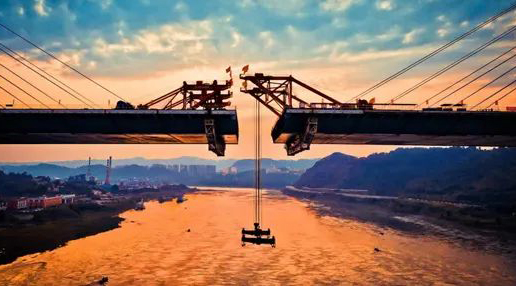China willing to help Pacific island countries to prosper, Chinese FM says after 8-nation tour
KOTA KINABALU, Malaysia, June 5 (Xinhua) -- Chinese State Councilor and Foreign Minister Wang Yi said here on Sunday that China is willing to help Pacific island nations to speed up development and revitalization after wrapping up his tour of eight island countries.
Under the turbulent international situation coupled with the lingering COVID-19 pandemic and weak economic recovery, Pacific island countries are faced with more risks and challenges, Wang said, adding that his visit was intended to enhance friendship, discuss cooperation, confront challenges, seek joint development, and create a future together with the island countries.
"This trip is a trip of peace, cooperation, and friendship," he said.
Wang said his tour covered all of the 10 Pacific island countries having diplomatic relations with China, and that he has, during the tour, held extensive, in-depth communication and exchanges with 17 leaders and more than 30 ministerial officials from the island countries.
For years, Pacific island countries are often been easily forgotten by the international community, or even marginalized, due to their weak national strength and voice, Wang said, adding that China is also a developing country and thus can better understand the situation, needs and concerns of small and medium-sized countries.
Wang expressed willingness to join hands with Pacific island countries to move forward with more solidarity, support each other with more determination, and conduct mutually beneficial cooperation with more pragmatism, so as to contribute to a closer community with a shared future between China and the island countries.
China and Pacific island countries, both developing countries, share extensive consensuses, similar concerns and common missions, he said. China's policy toward the island countries is to constantly advance their comprehensive strategic partnership featuring mutual respect and common development.
The concrete content of China's policy toward the island countries can be summarized as "four upholdings" -- the upholding of equal treatment, mutual respect, win-win cooperation, and openness and inclusiveness.
China's cooperation with the island countries does not target any other countries and will not be disrupted by any other states, Wang said.
China always adopts an open approach to engaging with any developed countries willing to conduct tripartite or multilateral cooperation in the island countries, so as to achieve multi-win and win-win results.
Kiribati's President Taneti Maamau stressed that island countries have the right to choose their own partners and expect China to play a bigger role in helping them promote development.
The island countries appreciate China's efforts to uphold justice in the international arena for the legitimate rights and interests of the island countries and to speak out for them in global affairs, such as climate change response.
China will forever remain a trustworthy strategic partner of the island countries, Wang stressed.
Regarding the next priority for China's cooperation with Pacific island countries, he said new and extensive consensuses have been reached to deepen pragmatic cooperation.
Firstly, both sides will work together to tackle climate change, which is the most pressing challenge facing the island countries.
Secondly, efforts will be made to help island countries promote diversified development, which is an inevitable course for them to achieve modernization.
Thirdly, both sides should join hands and do a good job of blue economy, which is key to the sustainable development of the island countries.
Fourthly, the cooperation should facilitate the expansion of emerging industries such as digital economy, which will be a growth point for the island countries' economy in the future.
Wang reiterated that China's cooperation with Pacific island countries is open, transparent and aboveboard.
In the cooperation there are no political strings attached and no imposition on others. The cooperation neither targets any third party nor seeks so-called "sphere of influence", Wang said, stressing that it can withstand the test of time and history.
He said China is ready to help and support Pacific island countries in their historical mission of accelerating development and achieving rejuvenation.
The second China-Pacific Island Countries Foreign Ministers' Meeting, which was held in Fiji on May 30, was the first of its kind held in a Pacific island country since the establishment of the mechanism in 2021.
All parties to the meeting spoke positively of the mutually beneficial cooperation with China as well as China's contribution to safeguarding the region's peace and stability and boosting its development and prosperity.
New consensuses were reached at the meeting, after which China released its Position Paper on Mutual Respect and Common Development with Pacific Island Countries, listing 15 principle proposals and 24 specific measures highly valued by the island countries, Wang said.
He noted that China's cooperation with Pacific island countries has been proceeding with bilateral cooperation as the main channel, and meanwhile with island countries-desired collective dialogue via foreign ministers' meeting in order to broaden communication and coordination to form greater synergy.
China also attaches importance to communicating with the Pacific Islands Forum and other regional organizations, Wang said, and foresaw a vibrant situation of "two-wheel driving" for China's relations with Pacific island countries with bilateral cooperation as the main channel and multilateral cooperation as the new platform.
China has no intention of scrambling for influence with any other countries and no interest in geopolitical rivalry, Wang said, adding that China respects the relations of Pacific island countries with other countries and the existing traditional bond of Australia and New Zealand with Pacific island countries.
China has launched productive tripartite cooperation with Australia and New Zealand in the island countries, which has been supported and welcomed by the island partners.
Pacific island countries, Wang said, are located in the southward extension of the Belt and Road and are important partners in Belt and Road Initiative (BRI) cooperation.
China has signed the memorandum of understanding on Belt and Road cooperation with all of the 10 Pacific island countries with diplomatic ties, and inked BRI cooperation plans with Papua New Guinea and Vanuatu, Wang said.
During Wang's tour, China also signed an implementation plan on Belt and Road cooperation with Kiribati, and achieved the outcomes of 52 bilateral cooperation deals with the island countries, which cover 15 areas including climate change response, fight against the COVID-19 pandemic, disaster prevention and mitigation, green development, healthcare and tourism.
Wang said China announced to build platforms of cooperation with Pacific island countries at the foreign ministers' meeting last year, i.e. the Climate Change Cooperation Center, the Poverty Reduction and Development Cooperation Center, and the Reserve of Emergency Supplies.
The Reserve of Emergency Supplies has facilitated Tonga's reconstruction after being hit by volcanic eruptions in January this year and has helped the island countries fight against the pandemic.
At this year's foreign ministers' meeting, China unveiled the platforms of the China-Pacific Island Countries Demonstration Center for Agricultural Cooperation, Disaster Preparedness and Mitigation Cooperation Center, and Juncao Technology Demonstration Center, to which the island countries have warmly responded. They also expressed willingness to actively participate in the platforms.
The six new cooperation platforms are tailored to meet the needs and conditions of the island countries. China is ready to mobilize more resources within this framework to conduct personnel training and launch demonstration projects in Pacific island countries to benefit their people.
Wang visited the Pacific island countries of the Solomon Islands, Kiribati, Samoa, Fiji, Tonga, Vanuatu, and Papua New Guinea, as well as Timor-Leste.
Photos
Related Stories
- China supports development of South Pacific nuclear-free zone
- China ready to bolster comprehensive strategic partnership with Pacific island countries: Chinese FM
- China to build new platforms for cooperation with Pacific island countries
- Cooperation between China, Pacific island countries sees vitality, bright future
- China, Pacific Island nations expand cooperation at second FMs’ meeting covering poverty alleviation, climate change and agriculture
Copyright © 2022 People's Daily Online. All Rights Reserved.









